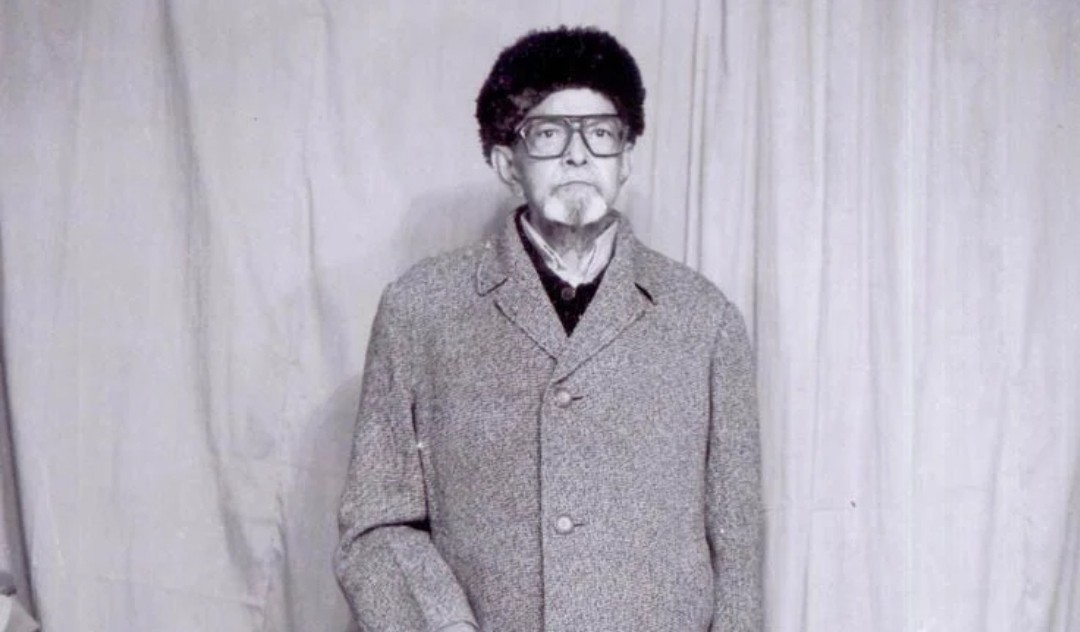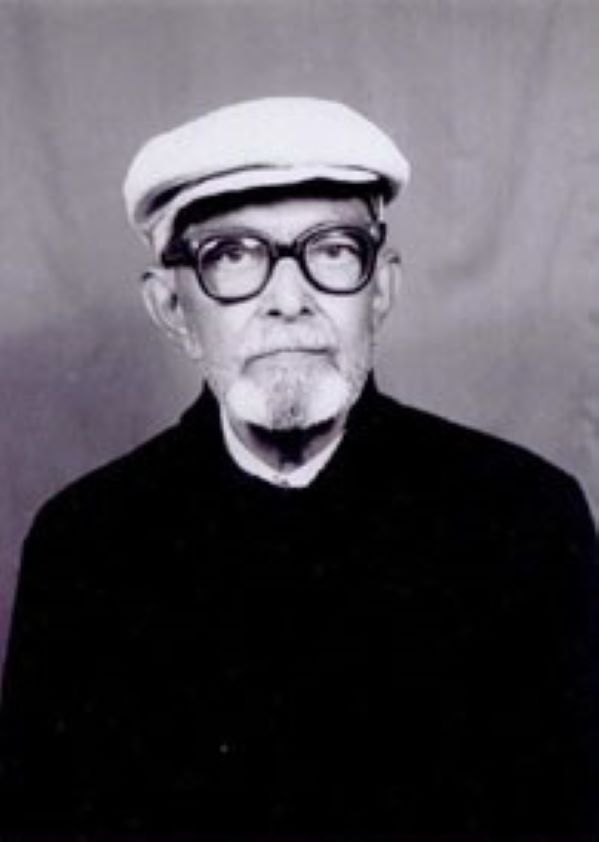Scion of a Syed family from Ahmedabad Gujarat in imperial India, Comrade Bukhari spent his life in Sindh since 1922. He was a much-loved and respected Marxist, whose contribution to the cause of peasants, industrial workers and the downtrodden has left lasting imprints not only on the lives of people of the sub-continent but also greatly influenced the mainstream politics.
Bukhari was born on 14th March, 1900 exactly 17 years after the death of Karl Marx, the founder of the modern communist ideology, on 14th March, 1883.
He was one of the founding members of the Communist Party of India (CPI)
During his early days at the Muhammadan Anglo Oriental College Aligarh, Bukhari got inspired by Moulana Muhammad Ali Jauhar and on his insistence left the college without completing his studies. (Qazi Fazalullah classmate of Bukhari, who later in life became Sindh Chief Minister, also left MAO College Aligarh). Bukhari and Qazi Sahib later joined Jamia Millia established by Maulana Muhammad Ali Jauhar.
Comrade Syed Jamaluddin Bukhari went to Moscow after the October (Russian) Revolution at the age of 19 and stayed there for about two years to get his initial indoctrination in the working of the Bolshevik administration during its early days. He returned to Ahmedabad in the last quarter of the year 1921.
On the advice of Moulana Muhammad Ali Jauhar, Comrade Bukhari arrived in Karachi at the end of 1921 or early 1922 and joined daily Al-Waheed, an organ of Khilafat Movement, where he worked for about six years during which he also remained acting Editor of the newspaper for a couple of months.

He was also the first and the last Secretary of Sindh Communist Party appointed by the CPI (1942 – 1948)
Comrade Syed Jamaluddin Bukhari was served with a show-cause notice on 25th November 1922, while he was working as Manager Al-Waheed followed by arrest and sentenced for 18 months rigorous imprisonment and fine of five hundred rupees, on non-payment of fine further imprisonment for six months.
He was one of the founding members of the Communist Party of India (CPI). Comrade Bukhari also attended the formation meeting of the Progressive Writers Association of India.
He was also the first and the last Secretary of Sindh Communist Party appointed by the CPI (1942 – 1948). In July 1948, Comrade Bukhari, Secretary Sindh Communist Party was arrested under Safety Act along with eight other Comrades and Party Office located opposite Light House Cinema on Bunder Road, was sealed. Comrade Shanta Bukhari (wife of Comrade Bukhari) who was running commune also left the Party Office.
On the instructions of Comrade Bukhari from Jail, Comrade Shanta handed over available Party Funds – twenty eight thousand rupees cash, keys of Communist Party properties including office, printing press, flat located in Burns Rod area, bank account details to Comrade Sajjad Zaheer while walking on Elphinistone Street Saddar Karachi, sometime in September or October, 1948. Comrade Hasan Nasir was also there.
During arrest under Safety Act Comrade Bukhari remained in Hyderabad and Karachi Prison for about eight months. In March, 1949 he was released and externed to Larkana. His Aligarh friend, Qazi Fazalullah, who was at that time Home Minister of Sindh, took Bukhari, his wife Comrade Shanta and two sons to Larkana.
Comrade Syed Jamaluddin Bukhari played a pivotal role in the struggle of the urban and rural proletariat in the subcontinent as President of the All India Kisan Sabha.
On taking over as Secretary Sindh Communist Party Comrade Bukhari started organizing working class, laborers, haris, youths, students and working women besides promotion of progressive Sindhi Literature and cultural activities. Arranged translation of writings of progressive writers in Sindhi and also translation of Communist Manifesto in Sindhi. Initiated the idea for formation of a progressive literary organization for promotion of Sindhi literature on the pattern of Progressive Writers Association which led to establishment of Sindhi Adabi Sangat by Comrade Gobind Malhi in the year 1946.
In addition to setting up of Nai Dunya Kitab Ghar, Sindh Communist Party also started Study Circle to acquaint knowledge and information about Marxism and the Communist Movement.
Comrade Bukhari was strong opponent of creation of One-Unit and also played a leading role in the Anti-One Unit Movement. Comrade Bukhari was the first person arrested in Sindh on the start of the anti-one unit movement in the year 1954
The party, under Comrade Bukhari as Secretary, arranged Sindh Hari Conferences at Sarhari and Mirpur Bathoro in early 40s besides active participation in the Naval Mutiny in February 1946. He was the man behind establishment of Sindh Hari Committee, besides organizing the trade union movement.
Movement for Separation of Sindh from Bombay and Anti-One Unit Movement were very important movements for Sindh and its people and Comrade Syed Jamauddin Bukhari was one of front line leaders of these two movements.
 Comrade Bukhari was strong opponent of creation of One-Unit and also played a leading role in the Anti-One Unit Movement.
Comrade Bukhari was strong opponent of creation of One-Unit and also played a leading role in the Anti-One Unit Movement.
Bukhari was one of 26 signatories of the Hindu-Muslim Pact for the separation of Sindh from Bombay (published in daily Al-Waheed on 20th June, 1928 and also in the book SINDH JI BOMBAY MAAN AZADI by Saeen G. M. Syed). Comrade Bukhari toured allover Sindh along with Shaikh Abdul Majeed Sindhi to create awareness and support for this cause.
At the Second Congress of the CPI at Calcutta (present-day Kolkata) in February-March 1948, he opposed the decision to establish the Communist Party of Pakistan and instead suggested allowing local leadership by holding its meeting in Pakistan to decide creation of Communist Party of Pakistan and appointment of Secretary General of CPP. At the Calcutta Congress Comrade Bukhari strongly opposed changing the point of view and CPI Thesis on Pakistan.
Comrade Bukhari is also acknowledged by political historians as the mentor of Zulfikar Ali Bhutto. Syed Jamaluddin Bukhari died in his 85th year on 17th December, 1984, and is buried at Larkana.
Published with sindhcourier
Comments